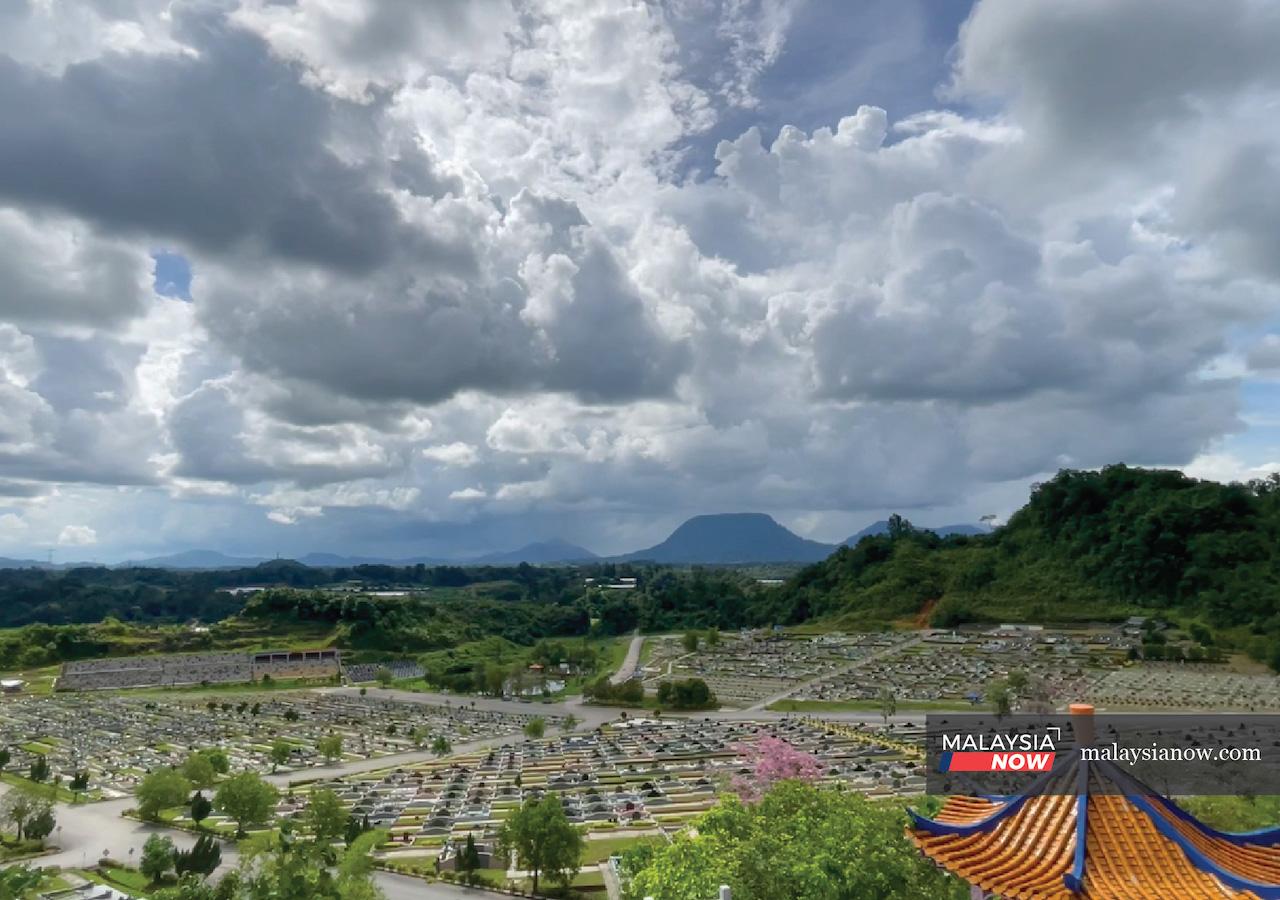When Covid-19 cuts short final farewells as well as life
Every aspect of the system has been disrupted, from the use of funeral parlours and mortuaries to the use of make-up on bodies.
Just In
For many, dying from Covid-19 is perhaps the worst possible outcome of contracting the disease which has so far claimed more than 2,200 lives in the country.
But for family members and loved ones who survive them, the ordeal continues.
Siaw Chow Jin, who manages a funeral and cemetery service in Kuching, says much has changed since the initial outbreak of Covid-19 early last year.
His day used to begin with phone calls, either from hospitals or directly from bereaved families. He would take these in his office at Nirvana Memorial Temple, a sprawling, quiet plot of land where he spends most of his time.
Here, he oversees every part of the funeral process from the transport of the body to providing programmes for services which Nirvana conducts for all non-Muslims.
Every aspect of the system has been disrupted, from the use of funeral parlours and mortuaries to the designated jobs of workers.
“Once they confirmed they would use our service, the planning for the funeral would get underway,” he told MalaysiaNow.
He would then direct his staff to collect the body and transport it to the funeral parlour where it would be kept in a casket for up to seven days, depending on the family’s wishes, after being washed and dressed, usually in traditional outfits.
This was before the pandemic.
Now, every aspect of the system has been disrupted, from the use of funeral parlours and mortuaries to the designated jobs of workers.
For one thing, Siaw’s team must now take more precautions to ward off the spread of Covid-19.
“We receive more emergency calls from hospitals,” he said. “That means more sanitising and disinfection work has to be done at the funeral parlours.”
While services are provided for both cremations and burials, they now strongly advise families to settle for the former.
“We need to save space inside and consider the safety of our staff,” he said, adding that everything must be done within 24 hours.
“For us, cremation would be the best option for now because we need to save space. We also have to limit the time for the funeral ceremony.”
Under normal circumstances, funeral ceremonies can continue for hours or even days depending on the religion of the deceased.
Now, family members have all of 10 minutes.
“Only close family members are allowed to attend,” Siaw added. The number of people is capped at 20 to discourage them from lingering at the premises once the funeral is over.
The team faces a chronic shortage of cremation containers and personal protective equipment which they must wear as a precaution against the spread of Covid-19.
The pandemic has also changed their workloads and the scope of their tasks.
They now work more than eight hours a day, especially when the cremation room overflows with ashes.
And in some cases, their work is no longer restricted to their original job description.

Kaka Tay Siaw is normally in charge of doing the make-up for the deceased. Now, though, she must help with cremation work as well.
She and her colleagues are also required to help man the entrance when visitors and family members arrive in order to screen their body temperatures.
“Those who die from Covid-19, their families are not allowed to take their bodies home,” Kaka, who has worked at Nirvana for six years, told MalaysiaNow.
“Although the person has passed away, the bacteria (in the corpse) might still be active. All of the preparation work is managed by the hospital authorities.”
For her, the greatest distress is that they are not allowed to put make-up on those who die from Covid-19.
“We are not allowed to do their make-up because the bacteria might spread to our hands or clothes, and when we go home it might infect others,” she said.
As someone who has spent years providing some last measure of dignity for the dead, she said seeing Covid-19 victims without make-up or dressed in their traditional clothes was heartbreaking.
Siaw said the limitations on funeral attendance in addition to the short ceremony might make it difficult for some family members to accept their loss.
He recalled a case in which an Indonesian man who came to Malaysia for medical treatment had died of Covid-19.
“The family wanted to hold a traditional wake, funeral and burial. It took time for us to communicate with them and for them to settle for cremation.
“We understand their struggles,” he added. “It was hard for them to accept because they were not able to spend more time to honour and mourn the deceased like usual.”
Subscribe to our newsletter
To be updated with all the latest news and analyses daily.
Most Read
No articles found.
